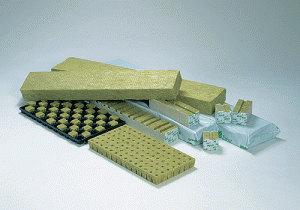*UPDATE 9/20 – Hydroton is, thankfully, still on the market! You can read on for some alternatives to Hydroton, or you can still purchase Hydroton as your preferred growing medium.
The announcement, “dried-up” went through the gardening industry like a sandstorm. Hydroton, the ultimate grow media for hydroponics, will soon be extinct.

The mined clay aggregate was kilned exclusively in Germany. The plants involved in the process are ceasing production. Why the outcry? What’s the big deal? Several reasons:
- Round is sound: The circular shape of the Hydroton balls allows a plant’s roots to grow without the undue stress of jagged sides (like some other hydro media) which can damage the plant’s overall health.
- Reuse Reuse Reuse: Got it? Hydroton can be cleaned (with either a strong 29% hydrogen peroxide or white vinegar) in between uses. This saves tons of money for long-term hydroponic farmers and hobbyists.
- No favoritism for acid or base: Another big draw for Hydroton is that it’s pH neutral. This is crucial for hydroponic users that try to keep their pH in the water stabilized for optimal plant growth.
- Pure holiness: The unique porous structure of Hydroton makes it ideal for holding both water and nutrient.
Where do we go from here? Companies that specialize in soil-less media are already ramping up their marketing to be the “next Hydroton”. So let’s look at some new kids on the block as well as veteran companies that already provide quality growing media for hydro.
Companies that specialize in soil-less media are already ramping up their marketing to be the “next Hydroton”. So let’s look at some new kids on the block as well as veteran companies that already provide quality growing media for hydro.
First up: rockwool. Rockwool sits high in the hydroponics hierarchy of growing media. High-grade rockwool (like the ones made by the company, Grodan) is ideal for hydroponics substrate systems (meaning a root zone supported by a growing medium). This man-made mineral fiber is created by melting balsatic rock and spinning it into fiber.

Grodan’s rockwool is of the highest quality thanks to being both inert and also lacking metals that could react with nutrient solutions. It owns uniform wetting and never gets totally saturated, preventing problems like root rot.
Grodan’s rock wool comes in all shapes and sizes for the discerning hobbyist and the experimental professional. One can choose from seed starting cubes to 6x6x6 blocks to long slabs for numerous plant sites. The one setback is that the grower must lower the pH (like soaking it in lemon water) before using rock wool.

derek osborne says
Just wanted to say thanks to you guys i am from TN so i use your ashville store and the guys that work there are awesome and i highly recomend the tea u guys make in store my plants love it
Toni Palma says
you mean I have to switch from hydroton to what
NoSoilSolutions says
I’m not a big fan of rockwool and much rather use Hydroton. Hydroton is back in business, but there are also other companies that make expanded clay.
Hydroponics says
Different plants require different type of medium for optimal growth.Terrestrial plants such as small herbs and vegetables can be grown directly with only their roots exposed to the nutrient solution. But some plants may require growing medium such as Rockwool, Coconut fibre, Sawdust etc.